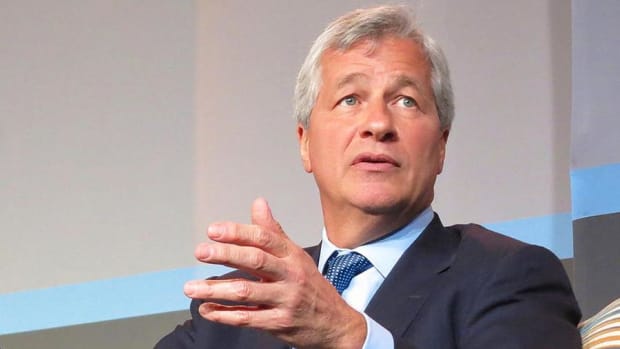The U.S. economy grew 5.7% last year, but many experts believe that number will tumble in a hurry. Deutsche Bank says the end result won’t be pretty.
“Two shocks in recent months, the war in Ukraine and the build-up of momentum in elevated U.S. and European inflation, have caused us to revise down our forecast for global growth significantly,” Deutsche Bank economists wrote in a commentary.
“We are now projecting a recession in the U.S. and a growth recession in the euro area within the next two years.”
The Russia-Ukraine war has sent commodity prices soaring. U.S. consumer prices surged 7.9% in the 12 months through February, the highest in 40 years.
“The war, which has transitioned into a stalemate that is unlikely to be resolved any time soon, has disrupted activity on a number of fronts,” the economists note. “These include upheavals in markets for energy, food grains, and key materials that have in turn further disrupted global supply chains.”

Shutterstock
Labor Market Woes Could Be Contagious
Beyond headline inflation numbers, economists were worried about the labor market ills migrating to goods and services.
“More troubling, especially in the U.S., are signs that the underlying drivers of inflation have broadened, emanating from very tight labor market conditions and spreading from goods to services,” the economists said.
The unemployment rate totaled 3.6% in March.
“Inflation psychology has shifted significantly,” the economists said. “And while longer-term inflation expectations have not yet become unanchored, they are increasingly at risk of doing so.”
Then there’s the Federal Reserve, which began raising interest rates last month, with a 25-basis point move. “The Fed, finding itself now well behind the curve, has given clear signals that it is shifting to a more aggressive tightening mode,” the economists said.
New Predictions on Fed Rate Hikes
Many economists and investors expect a 50-basis point hike next month. The federal funds rate target now stands at 0.25% to 0.5%.
The Deutsche economists predict the fed funds rate will peak above 3.5% next summer, with The Fed’s balance sheet rundown adding the equivalent of at least another 75 basis points in rate hikes.
The economists anticipate this tightening will produce negative growth for two quarters during the fall and winter of 2023-24. The economy will likely rebound after that, as inflation recedes and the Fed reverses some of its rate hikes, they said.
“We acknowledge huge uncertainty around these forecasts, but also note that the risks to the downside and of a deeper downturn are considerable.”
The prediction of receding inflation over the next several years stems partly from an assumption of no further negative geopolitical or other supply shocks, the economists said.
They also assume that “central bank action, while tardy, is just in time to keep inflation expectations anchored.”
To be sure, “should either of these assumptions prove incorrect, the inflation pressure, central bank tightening, and economic downturns could all be more intense than in our baseline projection,” they said.

Dimon Chimes in on Fed Moves
In other commentary about the Fed, JPMorgan Chase Chief Executive Jamie Dimon says the central bank may have to raise interest rates higher than investors and economists forecast.
In a letter to shareholders, he said, “I do not envy the Fed for what it must do next: the stronger the recovery, the higher the rates that follow. I believe that this could be significantly higher than the markets expect.”
Interest-rate futures traders price in a 73% probability of at least 225 basis points more of rate increases this year.
“If the Fed gets it just right, we can have years of growth, and inflation will eventually start to recede,” Dimon said.
“In any event, this process will cause lots of consternation and very volatile markets,” he said. “The Fed should not worry about volatile markets unless they affect the actual economy. A strong economy trumps market volatility.”







